Two years after the launch of the 1080p-only Chromecast with Google TV and four years after the 4K launchpad for Google TV, we have the highly anticipated Google TV Streamer. Is it the upgrade we’ve waited for or a misfire for home streaming? Here’s everything you need to know.
Given that the Chromecast with Google TV has been rife with issues for some people, you are undoubtedly looking to get something powerful, more capable, and more reliable. If that’s all you need to know, then the new hardware will hit the mark. No further reading needed. But if you want the full details, then read on…
Design differences
Google is dropping the dongle design for the updated streaming system. The Chromecast has always been a fully integrated product that simply plugs into the back of your TV and then into a power outlet.
The Google TV Streamer is very different because it is designed to be integrated into your home decor. It’s a rapid departure from the “set it and forget it” hardware that has existed for over a decade.
You need to provide your own HDMI 2.1 cable because the TV Streamer lacks the ability to plug-and-play like its predecessor. Lots of alternative streamers include HDMI connectivity as part of the design, so this could be a large compromise for a dedicated at-home cinema system. You’ll need to find somewhere to place the larger streamer or hide it behind your TV.

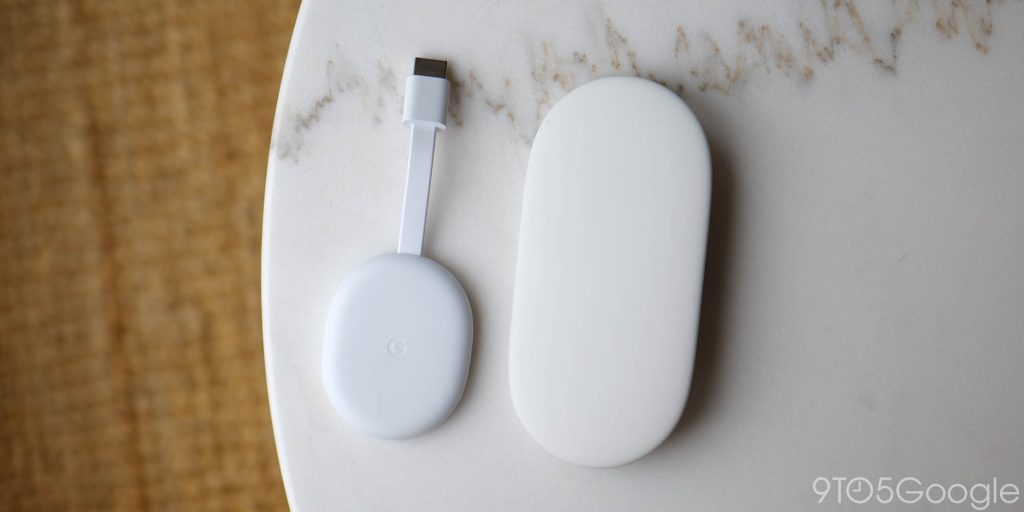
Colors are a little lacking this time around with the off-white Porcelain in global regions. The US gets a Hazel green, but that is limited to the Google Store. The Chromecast 4K has Snow, Sky, and Sunrise but the HD is only available in Snow. The dongle is going to be hidden at the back of your TV, so it’s only the color of the remote that really matters with the Chromecast.
Because you can plug in your own cable, you can hide or put the TV Streamer in way more places. High-quality HDMI cables are fairly cheap, too, so it’s not as much of a problem as it could be. The bigger box also means there is room for a dedicated Ethernet port. If you want the most stable connection, this could prove useful if Wi-Fi is spotty when you’re adding Google TV to your home.
There is also a new button at the rear that you can press to find your remote if you lose it. A long press and your remote will make a little noise, but you should be able to find it more easily. You can also quickly ask your Google Home or Assistant to find the remote, which is more useful if you choose to “hide” the TV Streamer from your TV center.
Bigger, better remote
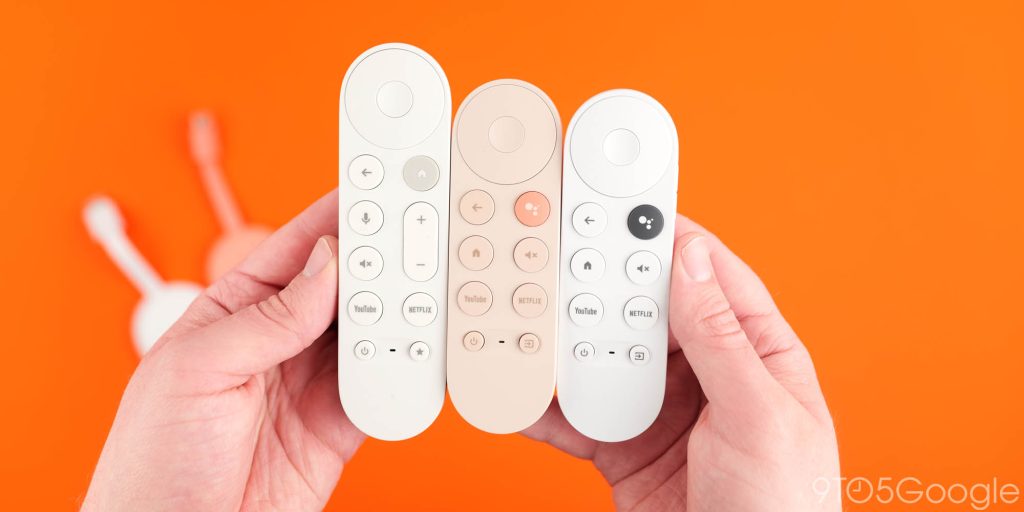
One notable area of improvement that the Google TV Streamer boasts is a bigger, better remote. It now has 10 face buttons and better ergonomics. The button placement means although visually, the TV Streamer remote looks bigger, it changes the way you use the peripheral.
The volume controls are moved to the face of the remote, the home button is beneath the circular navigation buttons, voice control moves down, and the custom hotkey button replaces the Input or Source control. Because of the find my remote function, there’s also a little speaker hole in the back of the new control too.
Improved Google TV experience
The “core” Google TV experience on the Chromecast with Google TV and Google TV Streamer is identical – at least on paper.
While Google refrains from confirming the internal chip of the TV Streamer, it doesn’t offer the biggest performance leap that a 4-year product refresh should probably offer. The MediaTek 8696 only offers a 22% performance uplift over the Amlogic S905D3, but there is 4GB of RAM – versis 2GB – now for a more fluid experience. The fact of the matter is that Google hasn’t made a particularly powerful streaming system. For reference, the Chromecast HD has just 1.5GB RAM and uses the Amlogic 805X2 SoC.
Don’t discount the Google TV Streamer just because of the slightly older chip though. Performance is more than adequate. It’s snappy and smooth. I have seen some lag just when powering on or when scrolling through some huge menus, but this is rare when compared the stuttery Chromecast experience in 2024.
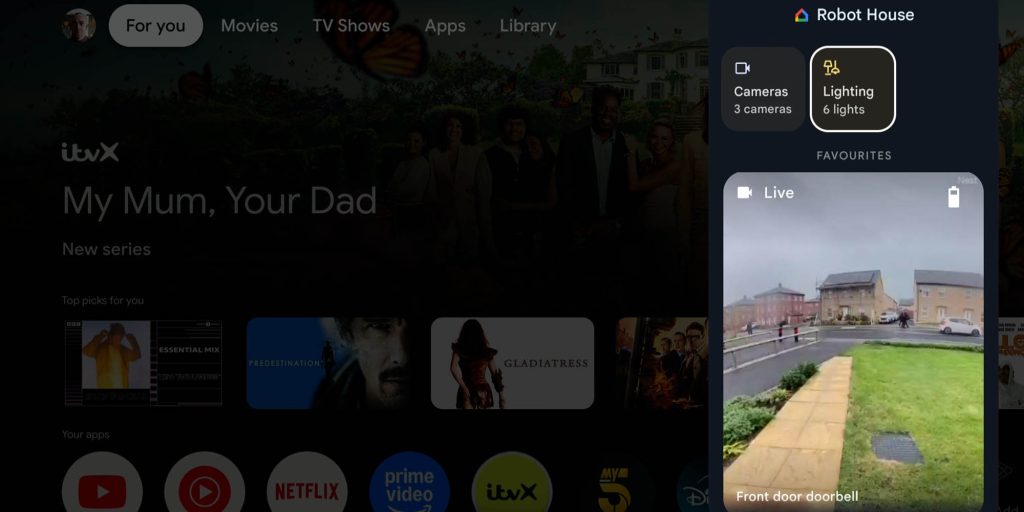
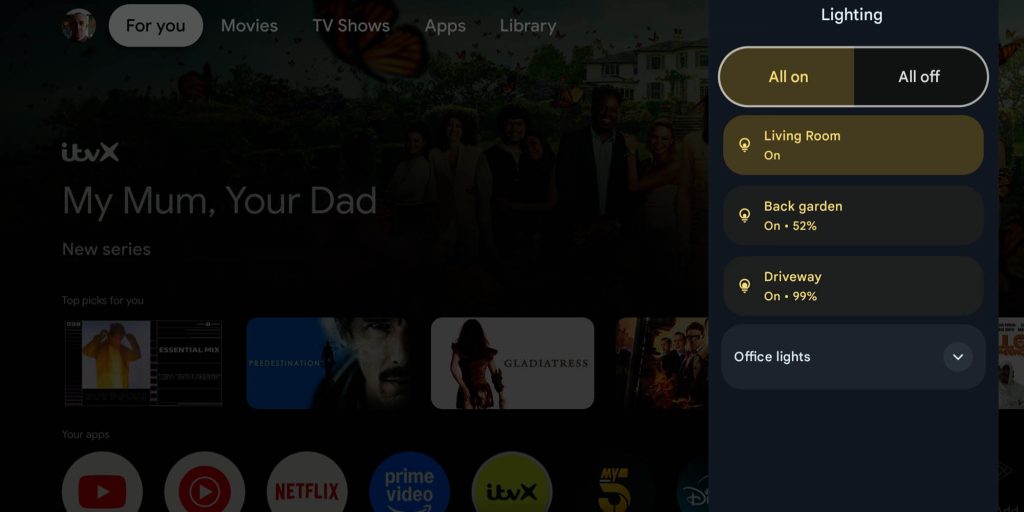
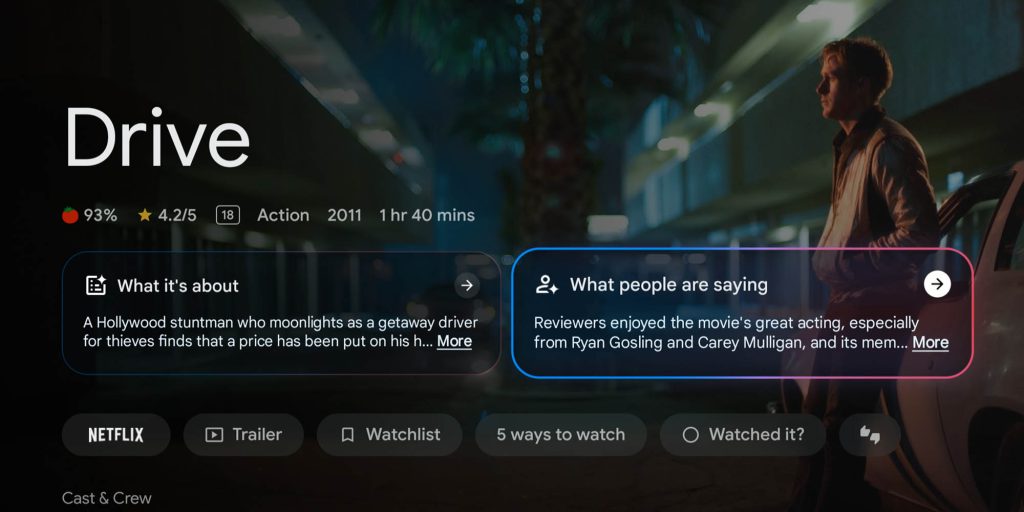
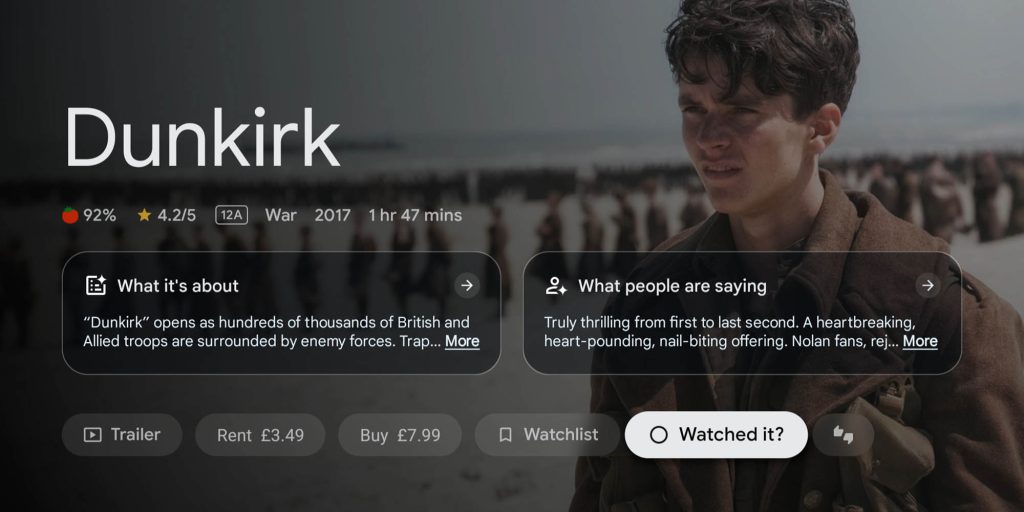
A lack of onboard storage has always hindered the Chromecast 4K and HD with just 8GB out of the box and under 5GB of usable space available. You’re getting a whopping 23GB of usable space on the Google TV Streamer, which is more than enough to install your favorite apps and games.
AV1 codec support is not present on the Chromecast 4K but is on the HD version and TV Streamer. This enables lower bitrates but higher quality for streamed content, which is useful given that Google has stuck with Wi-Fi 5 rather than upgrading to Wi-Fi 6 on the TV Streamer. Another limitation is that you still can’t pair multiple pairs of Bluetooth earbuds simultaneously on any of the Google TV-powered systems.
Google TV has a few new tricks, including Home controls, AI Summaries, AI screensavers, and a Sports “For You” page. These are the only major new changes with the upgraded hardware. However, Google is going to roll these out to other systems, including Chromecast HD and 4K, over the next few months.
The AI Summaries option is more helpful that it ought to be as it makes the recommendation-based Google TV homepage easier to sift through with key information about a show or movie. It’s not a “killer” feature by any means, but a nice timesaving addition to a sometimes confusing library of content competing for your time.
Home Controls are a very nice addition to your TV. If you do use Google-connected smart home systems, then you can see your cameras, turn lights off, adjust your thermostat, and even run routines. It’s integrated well and makes sense to have these options front-and-center in your home entertainment system.
Are there enough meaningful upgrades?
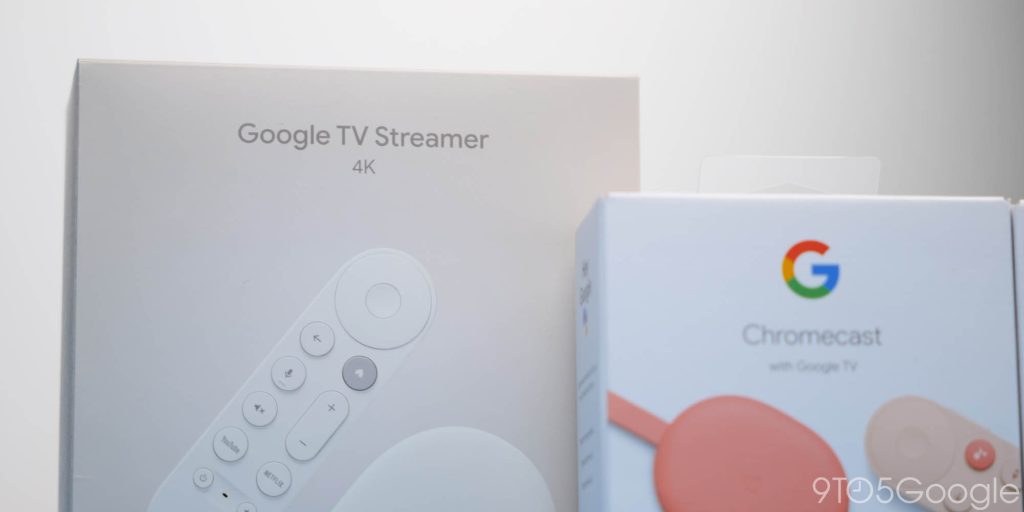
One of the major downsides to the Google TV Streamer is that while it offers some significant steps up over the Chromecast in a number of ways, it could end up lacking power into the future. Will it be as performant in the long term? If you are worried about longevity, you may need to look elsewhere.
Google has also confirmed that almost all Android-powered TV systems will eventually get a number of the features that launched alongside the TV Streamer. These include AI Screensavers, AI Summaries, the Sports page, and the Home Panel.
If other third-party systems are going to have more under-the-hood power and all of the functions that set the Google TV Streamer apart from these challengers, then it might not be wise to stick with a first-party streaming system for the foreseeable future. Complaints aside, comparing the Chromecast to the Google TV Streamer shows a substantial improvement in usability and daily experience.
Here’s some good news: The older hardware is sticking around for a while at least until inventory is completely sold out. Expect fire sales and discounts as stock dwindles. If you want a basic, portable streaming system, Chromecast just about does the job. Again, there are better, cheaper alternatives with the same form factor.
$99 is a lot of money for the Google TV Streamer. There are upgrades, but it’s not the streaming savior for Android TV. It will be a great addition to most home streaming systems, but there are better, more powerful alternatives out there if you desperately need something more substantial.
Get the Google TV Streamer
FTC: We use income earning auto affiliate links. More.

![Chromecast vs. Google TV Streamer: Are the upgrades enough? [Video] Chromecast vs. Google TV Streamer: Are the upgrades enough? [Video]](https://i0.wp.com/9to5google.com/wp-content/uploads/sites/4/2024/10/Google-TV-Streamer-and-Chromecast-with-Google-TV-4K.jpg?resize=1200%2C628&quality=82&strip=all&ssl=1)